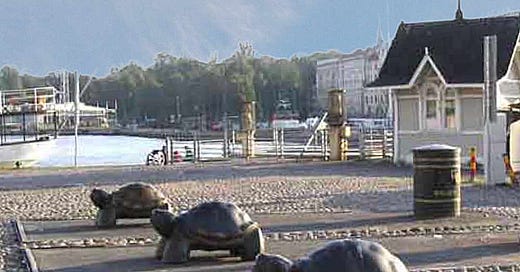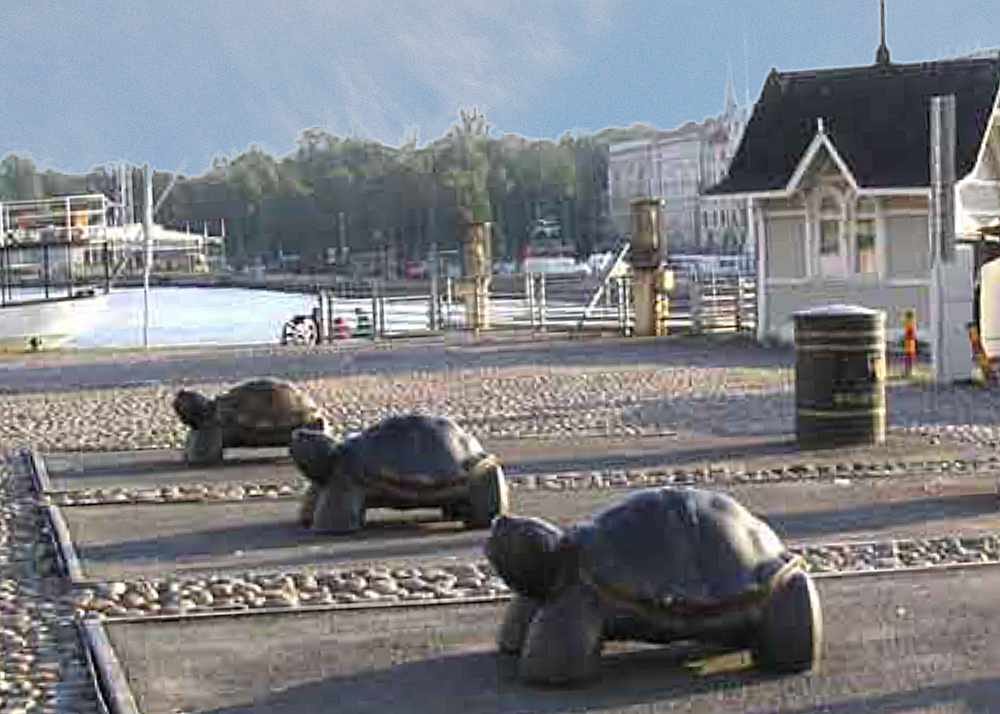One of the effects I have observed from the pandemic and full-time remote work is slowness. All around me I see signs of people slowing down. I too find my own work slowing down.
For example, I am preparing a podcast–Bold New Breed–based on my research around the workplace. My preparation is going more slowly than I expected, both technically (not a surprise as it's a whole new media) but also in defining and refining the content.
However, the slowness has been beneficial for my own thinking
Photo by myself, Helsinki, years ago
I have heard firsthand from other people who have found the long unending period of (semi) confinement to be enriching for them, personally. They have had more time to think. They have been able to get into the "why" of their work rather than just racing to meet the next deadline. Of course, others have had difficult remote work experiences, either because of home or professional constraints. Experiences vary tremendously depending on context.
Whatever your case, I hope the following three sources will encourage you to think about how you might appreciate your slowness, deliberate or imposed, and deepen what it brings.
In Praise of Slowness
Let's start with Carl Honoré, author of In Praise of Slowness (2004), who said:
[The slow movement] is a cultural revolution against the notion that faster is always better. The Slow philosophy is not about doing everything at a snail's pace. It's about seeking to do everything at the right speed. Savoring the hours and minutes rather than just counting them. Doing everything as well as possible, instead of as fast as possible. It’s about quality over quantity in everything from work to food to parenting. Link on Goodreads.
Thinking Fast and Slow
Then there is Thinking Fast and Slow (2011) by Daniel Kahneman, psychologist and winner of the Nobel Prize in Economics, a best-in-class on many lists in 2011.
Kahneman describes two ways of thinking: System 1–fast, intuitive, and emotional; and System 2– slower, more deliberative, and more logical. He shows us how both shape our thoughts and actions. We are usually lacking in the second, and Kahneman makes it clear how important slow thinking is. Link on Goodreads.
Working Slowly and Productivity
And finally, in "Five Ways Working More Slowly Can Boost Your Productivity", FastCompany (2016), Faisal Hoque, outlines five key outcomes of slowing down: (full article)
You’ll realize you have more time than you think
You can think more rationally
You become a better listener
You’ll better rectify mistakes—and avoid them more often
You’ll teach your brain to slow down on its own (and that’s a good thing)
Being based in France, I'll close with a phrase from Molière:




